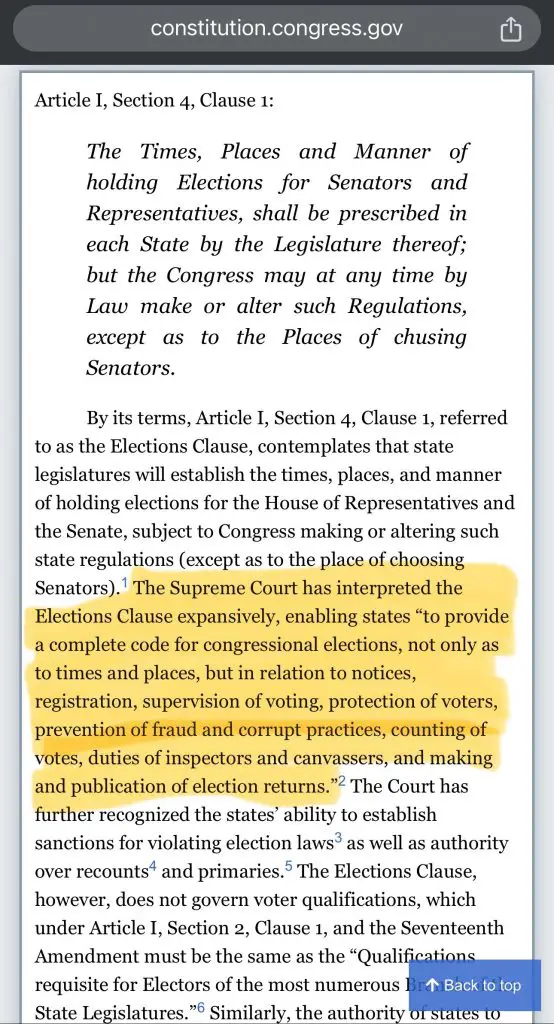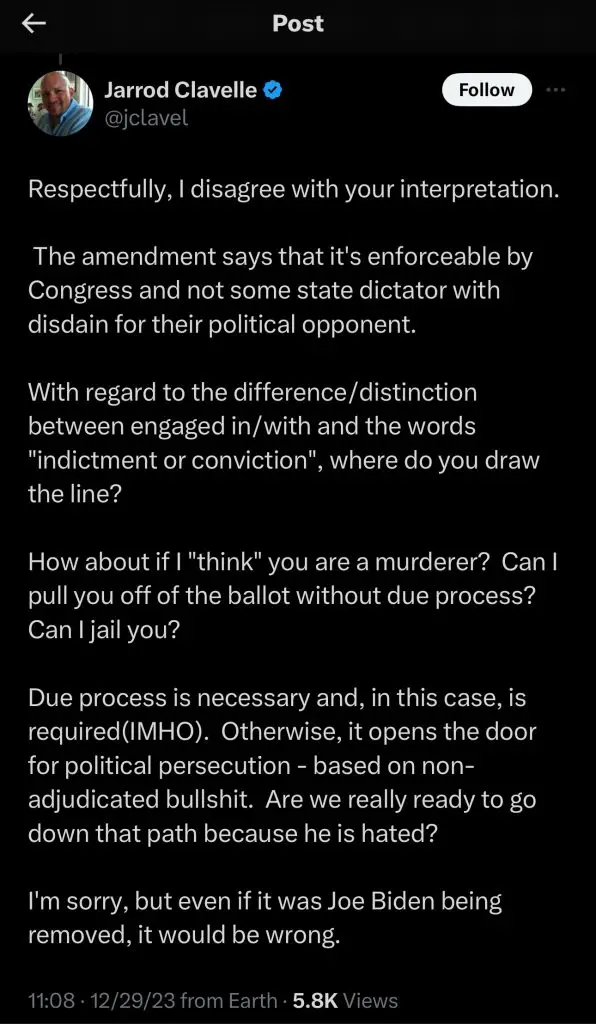Insurrection (Part 2): Donald Trump and the 14th Amendment, Section 3

Crowds surrounding the Reflecting Pool, during the 1963 March on Washington
By Shawn B
In Part 2 of my series on the January 6, 2021 insurrection, I have a respectful discourse with another gentleman regarding his and my opinions on the 14th Amendment, Section 3 and Donald Trump’s actions on that fateful day. In the end, we sort of agreed to disagree, but he actually said he was thankful for my insight and it influenced (hopefully positively) his perspective. Without further ado, here goes.
Respectfully, I disagree with your interpretation.
X(Twitter) Post by Jarrod Clavelle (@jclavel)
The amendment says that it’s enforceable by Congress and not some state dictator with disdain for their political opponent.
With regard to the difference/distinction between engaged in/with and the words “indictment or conviction”, where do you draw the line?
How about if I “think” you are a murderer? Can I pull you off of the ballot without due process? Can I jail you?
Due process is necessary and, in this case, is required (IMHO). Otherwise, it opens the door for political persecution – based on non-adjudicated bullshit. Are we really ready to go down that path because he is hated?
I’m sorry, but even if it was Joe Biden being removed, it would be wrong.
As we talked about in Part 1, enforcement in the context of the 14th Amendment, Section 5 (14/5) is ensuring the rights are lawfully applied and providing remedies, redress when they are violated. Authority to administer and conduct elections is vested in the States by the Constitution. This enforcement includes the prevention of fraud and misdeeds and ensuring qualifications in accordance with the constitution and established laws. In fact, it is a longstanding legal understanding that a right, as a practical matter, does not exist without a remedy for its enforcement. The Supreme Court, in its opinion on Marbury v. Madison, 5 U.S. 137 (1803), quoted notable legal commentator William Blackstone: “it is a general and indisputable rule that where there is a legal right, there is also a legal remedy by suit or action at law whenever that right is invaded.” It is in this understanding that the proper context of enforcement exists – as a remedy to earned rights that are violated, and NOT the converse where rights are to be enforced in order to be earned.

Congress can legislate to ensure the states do not violate these requirements, but it doesn’t not mean Congress is certifying candidates meet minimum qualification or disqualification standards. Take, for example, the minimum age requirement of 35, being a natural born citizen, being present in the United States for 14 years prior to running for the office of the President, and the requirement to not have engaged in or aided insurrection. A state can say even though you’re 36 you can’t run, but then becomes Congress’ job to enforce the standard and say you are over 35 – that you qualify.
Congress does not have the power to pass laws that override the Constitution. If enforcement were in context of having Congress legislating the qualification status, it would simply mean the states would need to submit all candidates to Congress for certification prior to allowing them on a ballot. This has never been the case in the history of our elections. It would mean the last ~250 years of election cycles have been conducted erroneously. This is not a prescribed duty of Congress – nowhere in legislation, nowhere in judicial precedence, and nowhere in the Constitution.
I happen to believe our system of governmental checks and balances were craftily created and have been an effective control on our democratic experiment. States sovereignly enact and enforce their laws; disagreements are challenged in federal courts and decisions are respected once legal precedence is set. In congress, our House and Senate both propose and adopt rules, self-checking each other before getting the stamp of approval by the Executive. As well, the Executive can propose orders that are challengeable by the judiciary. It’s brilliant. As far as this ballot contention is concerned, the states are ruling in their own interests, and being challenged federally. The Supreme Court must take up this issue, and when it decides, we all need to live with the outcome – like it or not.









